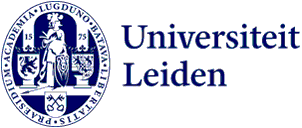162 search results for “quantum mechanisms” in the Student website
-
Veni grants for 22 researchers from Leiden University
An impressive 22 research projects by Leiden researchers have been awarded Veni funding from the Dutch Research Council (NWO).
-
Spinoza and Stevin Prizes for three Leiden professors
Three Leiden professors have recently been awarded the most prestigious scientific accolade in the Netherlands: Maria Yazdanbakhsh and Marc Koper have been awarded a Spinoza Prize and Judi Mesman a Stevin Prize. They received their prizes on 13 October.
-
‘Make science communication more work and less hobby’
Young researchers met this month for the fifth Science Communication Summer School. ‘This is the first time some participants get to meet other researchers who also enjoy science communication. It’s great to see’, says Julia Cramer, one of the coordinators.
-
Vote for your favourite ‘uni-vision’
What will it be like to study at Leiden University in 2075? Ten surprising, artistic uni-visions could be brought to life. It’s up to you to vote for your favourite.
-
Mayor Heijkoop feels like an ‘ambassador’ for the university
Leiden Mayor Peter Heijkoop visited the Faculty of Social and Behavioural Sciences and the Faculty of Science on Monday,
-
Vici grants for seven researchers from Leiden University
From research on stellar winds to sign language: an impressive seven researchers from Leiden University will receive a prestigious Vici grant from the Dutch Research Council (NWO).
-
‘Scandals mean society is actually doing well’
Whereas the Netherlands Court of Audit used to conduct an investigation once a year, the average civil service organisation now has a few per year to contend with. Is so much going wrong nowadays? Not at all, says Professor by Special Appointment Sjoerd Keulen. ‘It’s one of the methods that makes democracy…
-
Neutrino: Documentary & Q&A with the directors
Studium Generale
-
 Ionica Smeets
Ionica SmeetsFaculty of Science
-
Leiden Shorts - Pluto in Aquarius: Celestial Bodies
Film Festival
-
International Criminal Justice: Utopia or Reality?
Lecture, 5th Owada Chair Symposium
-
Hosting Global Justice: The Netherlands and International Courts (ICJ & ICC)
Lecture, Studium Generale
